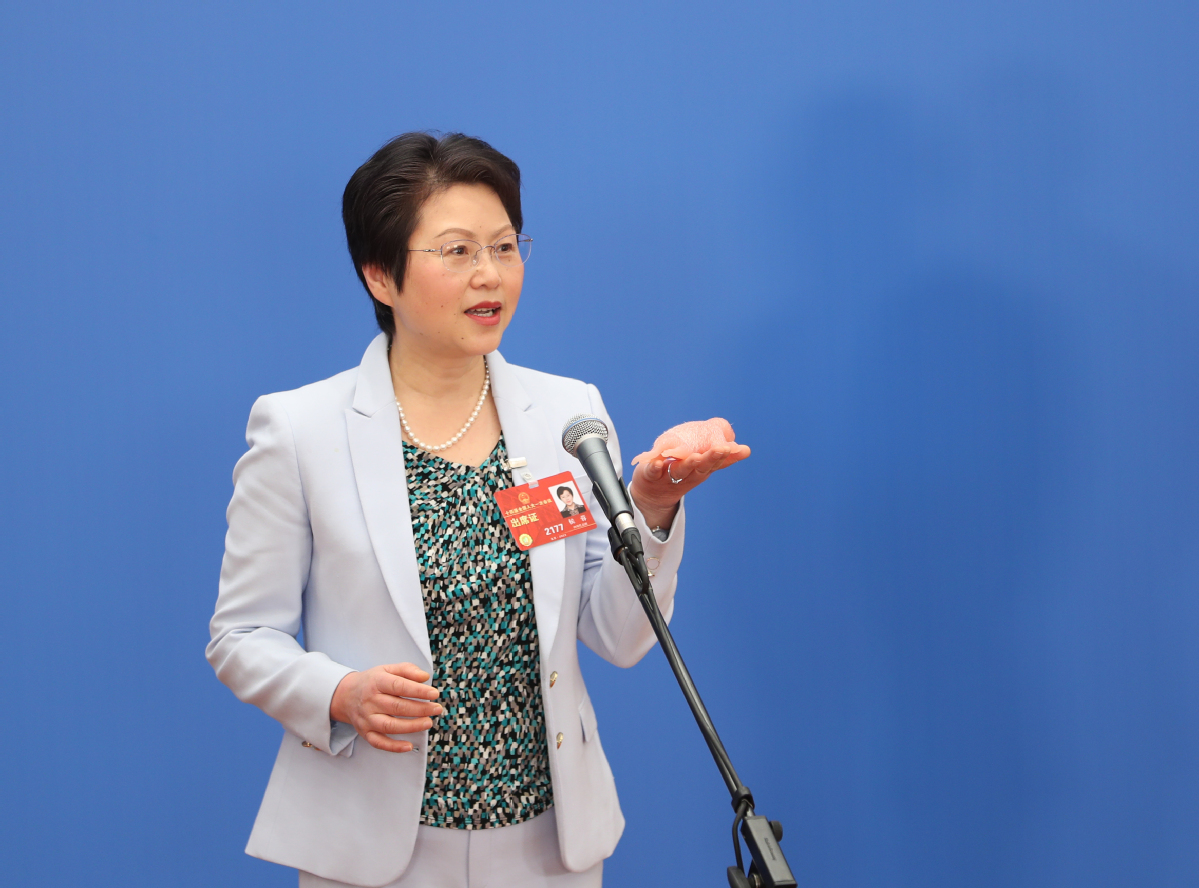Giant panda breeder behind new laws to protect wildlife

Hou Rong, a deputy to the 14th National People's Congress (NPC), attends an interview ahead of the opening meeting of the first session of the 14th NPC in Beijing, capital of China, March 5, 2023. [Photo by Zou Hong/chinadaily.com.cn]
Hou Rong, a giant panda breeder and a national legislator, was behind the recent legal overhauls aimed at bolstering the wildlife genetic data conservation and curbing animal diseases.
Hou, deputy director of the Chengdu Research Base of Giant Panda Breeding in Sichuan province, was elected a deputy to the National People's Congress, the top legislature, in 2018. She was elected for another five-year term last month.
During her research into panda conservation, Hou found that laws were incomplete in terms of wildlife protection and disease prevention. As a lawmaker, she proposed to conserve animal's genetic resources and create a joint prevention and control mechanism — a cross-departmental management body — to help control animal disease. She also suggested to strengthen the management of stray animals, and establish standards over the wildlife quarantine, many of which were adopted by the top legislature.
"Biodiversity conservation entails hard work from various fields," she said at a delegates' passage interview on the sidelines of this year's two sessions, the annual meetings of NPC and the Chinese People's Political Consultative Conference National Committee, the top political advisory body.
In her capacity as a lawmaker, the 55-year-old has submitted three motions to revise the Wildlife Protection Law and another one on Animal Epidemic Prevention Law.
She also led the submission of 31 legislative suggestions and 10 motions to NPC. Eight of the motions eventually resulted in the revising of relevant laws and regulations.
Her lifelong devotion to panda breeding and wildlife conservation can be traced back to a close contact with a baby panda in the autumn of 1995.
"It was the first time I saw a panda newborn in person," she recalled. The newborn named Jiaozi, weighing just 80 grams, was lying in her palm, and was in need of artificial breeding. It hadn't opened its eyes and needed assistance with defecation.
However, such a tiny and delicate thing could give out surprisingly loud noises, which to Hou seemed to be its eagerness to survive and live on.
"Baby panda looks drastically different from the grown up ones the public are familiar with," she said. "I can almost see through its belly skin and see the organs in its stomach."
The episode sowed a seed in her mind and let her marvel at the weight carried by panda breeders. Her career at the breeding base in Chengdu saw the panda population rise from just 18 to more than 200 by end of last year.
Though a veteran breeder, Hou said breeding is only a start. "Our ultimate goal is to let pandas to regain the wild nature and return to the wild," she said. "That entails better protection of panda's habitats."
The deputy director said she had seen huge progress in China's ecological civilization over the past decade. Over the period, the national park has transformed from a little-known concept to a reality. In 2021, a national park tasked with protection of pandas, and several others were officially established.
"Ecological protection has become a consensus of the Chinese people," she said.

